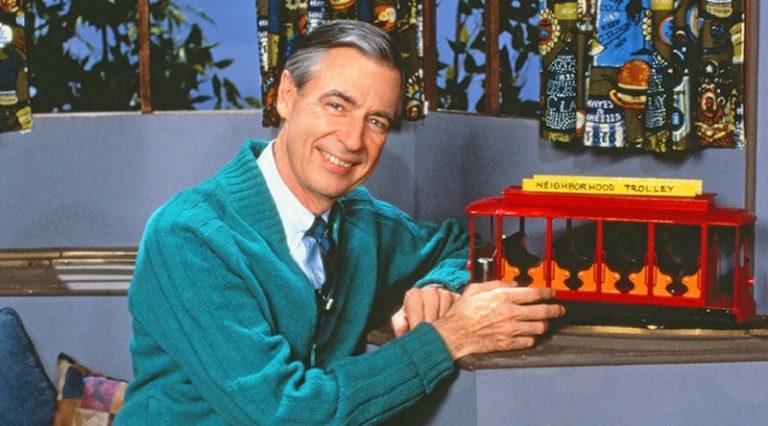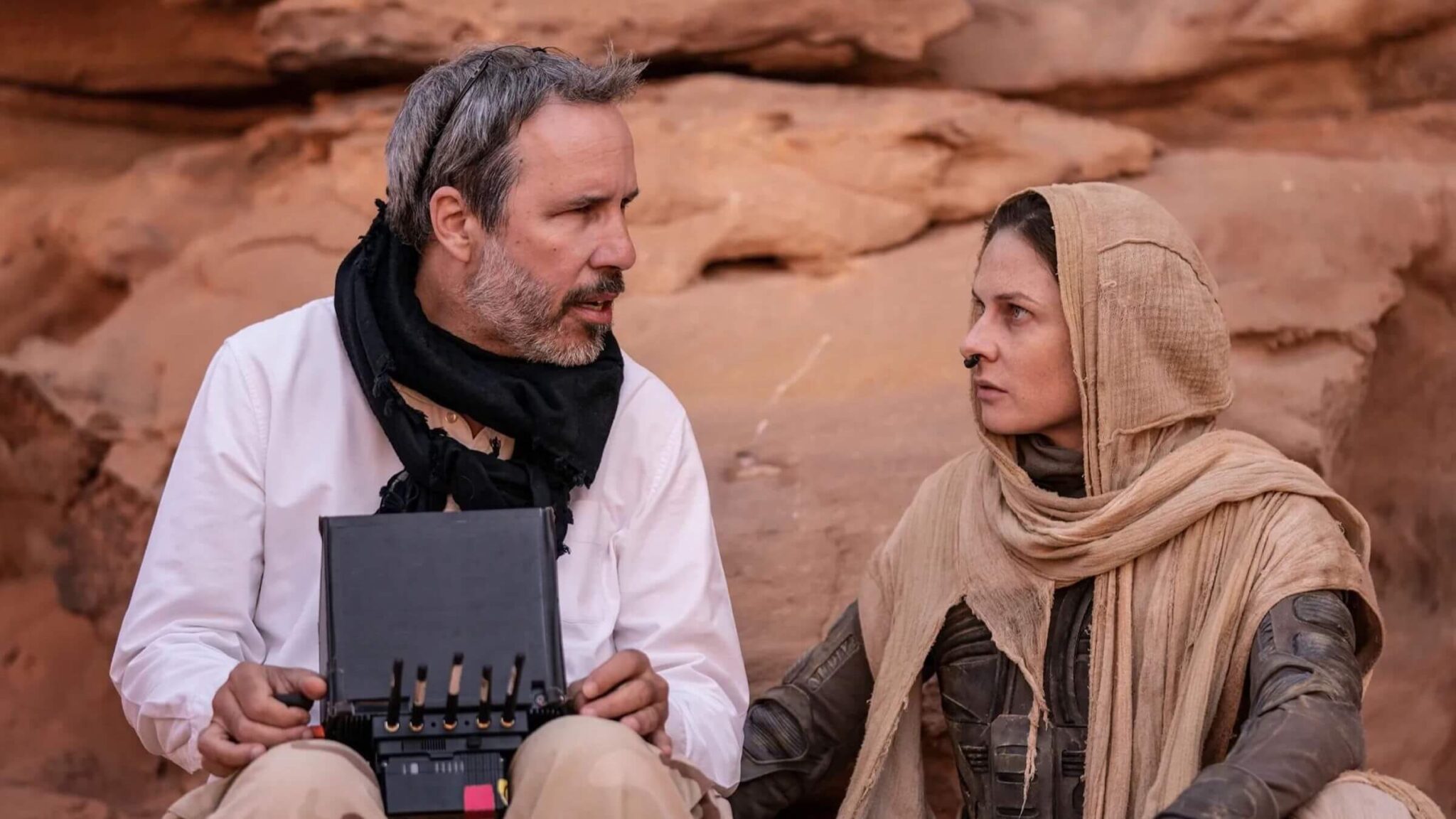
What screenwriting lessons can screenwriters learn from Mister Rogers?
Fred Rogers was the beloved host of the public television show Mister Rogers' Neighborhood which ran on PBS from 1968 to 2001.
Known for his wisdom and positive outlook on life, social issues, and education, Rogers remains to be a powerful force in the eyes of men, women, and children.
Below we take many of his most famous inspiring quotes and apply them to the art, craft, and business of screenwriting, for wisdom has no bounds.
1. "I hope you’re proud of yourself for the times you’ve said 'yes,' when all it meant was extra work for you and was seemingly helpful only to somebody else."
When you get to the stage of your career where you are writing on assignment — or even doing a script rewrite request for your manager — you're going to have to learn that film and television are collaborative mediums. You're going to have to learn how to take notes and apply them to your script. And you're going to have to also understand that sometimes those notes won't jive with your vision.
That's part of being a professional screenwriter.
2. "There are three ways to ultimate success. The first way is to be kind. The second way is to be kind. The third way is to be kind."
Many novice screenwriters are very impressionable when they look upon successful screenwriters and filmmakers for advice. They'll watch interviews, Q/As, and panels, seeing these successful figures discuss the many elements of crafting a screenplay.
And with success often comes confidence. And with success in Hollywood, ego often follows. You can see it in those videos as Oscar-winners go on and on about their craft. They sometimes create a negative impression on young screenwriters. An impression that implies that if you want to succeed, you have to do it your way and fight anyone that wants to change you.
While there is some truth to that, you always have to remember to choose confidence over ego. And even when you're confident, you always want to present that in the kindest way.
Hollywood doesn't want to work with difficult screenwriters. Being difficult does not denote ability, skill, or strength.
Be a screenwriter that everyone wants to work with, not someone that people are forced to deal with.
3. "You rarely have time for everything you want in this life, so you need to make choices. And hopefully, your choices can come from a deep sense of who you are."
As a screenwriter, you have to choose your projects wisely. Which means that you have to dig deep to find the projects that you are most passionate about. But that passion has to also be paired with a sense of what Hollywood is willing to buy as well.
Screenplays take a lot of time to develop, write, and market. You won't have time to create and write every little idea that comes through your head.
Choose wisely.
4. "It takes strength to acknowledge our anger, and sometimes more strength yet to curb the aggressive urges anger may bring."
Screenwriting is wrought with rejection. You will experience more rejection than you ever will succeed. And this is even true to those top one percent screenwriters making the millions and winning the awards. There's no escaping that.
The mistake too many screenwriters make is channeling their anger towards the system — in this case Hollywood. They decry that Hollywood is obsessed with remakes, is scared of anything original, and won't take chances on anyone new. While there is some truth to those observations, it does you no good to fester in this anger.
The truth is Hollywood does remakes because it's often a safe bet to work with intellectual property that has an embedded fan base. There's less risk. And Hollywood is scared of originality because they are forced to bet millions upon millions of dollars in anything they take on. And much — but not all — of the time, the audience doesn't want to gamble their time and money on original films. And finally, Hollywood is overly saturated with screenplays from screenwriters that aren't ready and haven't honed their craft. 95% of the screenplays in the spec market are either outright horrible or average at best. So it's difficult to find new writers that are truly talented and ready.
Point being, you need to stop being so angry and put your efforts into understanding the problem and then figuring out what you can do to overcome that hurdle.
5. "It takes strength to face our sadness and to grieve and to let our grief and our anger flow in tears when they need to."
When you don't win that contest, or that manager says that they aren't going to represent you, it's okay to be sad about it. And it's certainly okay to process that grief.
But you never want to linger within those emotions. There's a time to grieve, and then there's a time to show strength, move past that grief, and continue on in your journey.
6. "'Fame' is a four-letter word; and like 'tape' or 'zoom' or 'face' or 'pain' or 'life' or 'love', what ultimately matters is what we do with it."
Many screenwriters can become obsessed with fame, in terms of making the millions and being known as the next hot screenwriter. They want to be on The Black List. They want to be picked up by that high-tier management company or agency. They want to get their scripts read and considered by the big names in Hollywood.
But that type of success matters not when it comes to what you do with that fame.
Do you let it go to your head and rely on that newfound success to carry your career, or do you use those opportunities to learn more about the art, craft, and business of screenwriting?
Learn how to train yourself to be ready for screenwriting success with this free guide.
7. "Real strength is neither male nor female; but is, quite simply, one of the finest characteristics that any human being can possess."
If you want to strive to become a professional screenwriter, you're going to have to be strong. You're going to be facing a lot of rejection, and you're going to have to do a lot of soul searching to learn what you're good at and what you're not.
Strength is a necessary attribute that all screenwriters have to have because those that are strong continue to fight. And those that continue to fight despite all of that rejection and self-doubt are those that eventually prevail.
8. "Often when you think you're at the end of something, you're at the beginning of something else."
When the contest deadlines have passed, the winners have been announced, and you're not one of them, it's not the end of something — it's the beginning of a new venture.
You can either take what you learned from the disappointment and readjust the script, or you can move onto the next story. Always move forward and don't mourn the ending. Instead, celebrate a new beginning.
9. "The thing I remember best about successful people I've met all through the years is their obvious delight in what they're doing, and it seems to have very little to do with worldly success. They just love what they're doing, and they love it in front of others."
Even when you're struggling, and things aren't turning out as you had hoped, you need to take joy in the process of writing. All of the uncontrollable elements will take care of themselves.
The love for the process of writing is what will carry you through the most difficult of times.
10. "Often, problems are knots with many strands, and looking at those strands can make a problem seem different."
When you've hit a wall in your screenplay and can't put your finger on what the problem is, pay attention to the finer details beyond the plotting.
Look at your characters and their motivations. Look at the amount of conflict they are facing. Look at their inner conflicts and their outer conflicts.
Unraveling those smaller strands will often loosen those much larger knots.
11. "I think of discipline as the continual everyday process of helping a child learn self-discipline."
Self-discipline is a must for screenwriters. Sure, you can be a member of a writers' group that forces you to meet every week or every month with pages in hand. Sure, you can work with a consultant or mentor that forces you to examine your pages with a disciplined structure.
But you'll never be a true screenwriter until you can do all of those things on your own.
You need to learn to be self-disciplined in your writing. Set deadlines and stick to them. Set directives in your screenplay's concept, structure, plotting, and characterization and stick to them.
Nobody can teach you to be a disciplined writer. You have to do it yourself.
12. "You know, you don't have to look like everybody else to be acceptable and to feel acceptable."
Too many screenwriters feel to need to follow the current trends and emulate others that have succeeded. They feel that the only way they'll be accepted is if they do so.
Nothing could be further from the truth.
If you emulate others and follow those current trends, you'll be lost among the many others doing that very same thing. The way to get noticed is to be different. Or to push what others have done to the next level.
13. "Deep and simple are far, far more important than shallow and complicated and fancy."
The screenwriters that dress up their scripts with complicated and fancy concepts, storylines, characters, dialogue, and scenes pale in comparison to those that write simple and straightforward elements that have deep meaning.
Sometimes the best way to go is simple, as long as each concept, storyline, character, line of dialogue, and scene has deep, cathartic meaning.
14. "Anyone who has ever been able to sustain good work has had at least one person — and often many — who have believed in him or her."
All that it takes is that one person who believes in your work. That's all that you need. But you can't find that person if nobody ever gets a chance to read the script.
Get your work out there as much as possible. It doesn't matter if 99 people reject you and your work. It's that 1 in 100 that can make your dreams come true.
Ken Miyamoto has worked in the film industry for nearly two decades, most notably as a studio liaison for Sony Studios and then as a script reader and story analyst for Sony Pictures.
He has many studio meetings under his belt as a produced screenwriter, meeting with the likes of Sony, Dreamworks, Universal, Disney, Warner Brothers, as well as many production and management companies. He has had a previous development deal with Lionsgate, as well as multiple writing assignments, including the produced miniseries Blackout, starring Anne Heche, Sean Patrick Flanery, Billy Zane, James Brolin, Haylie Duff, Brian Bloom, Eric La Salle, and Bruce Boxleitner. Follow Ken on Twitter @KenMovies
For all the latest ScreenCraft news and updates, follow us on Twitter, Facebook, and Instagram.
Tags
Get Our Screenwriting Newsletter!
Get weekly writing inspiration delivered to your inbox - including industry news, popular articles, and more!



























